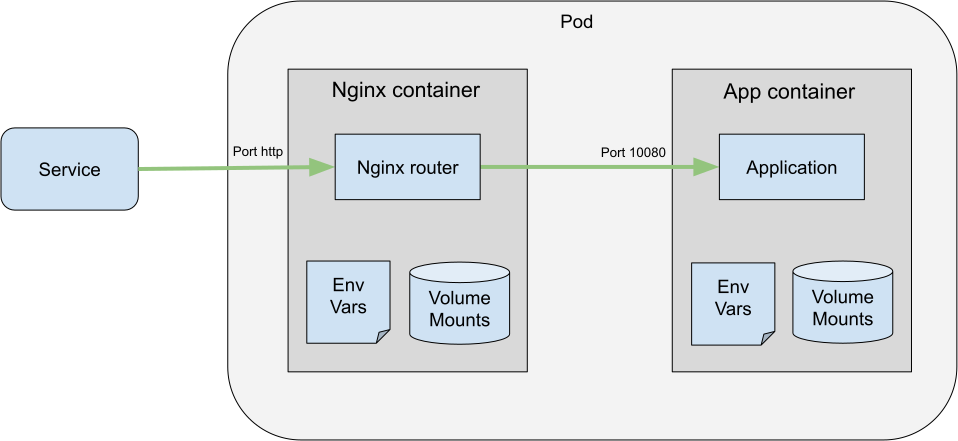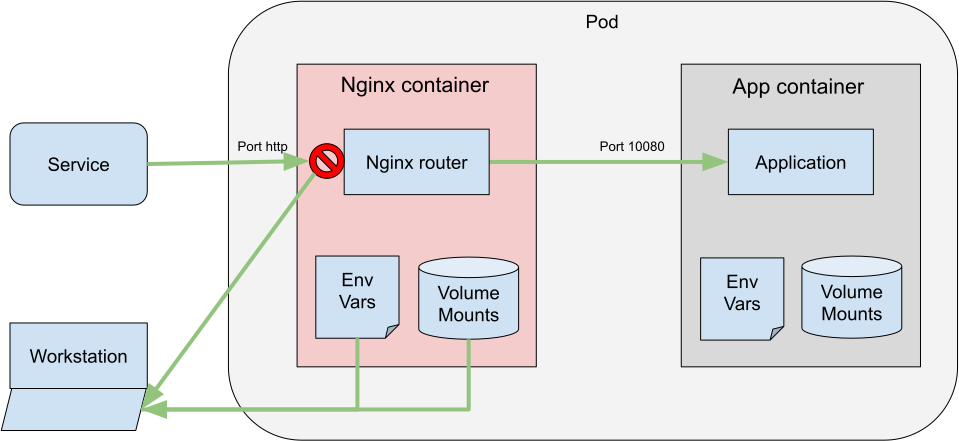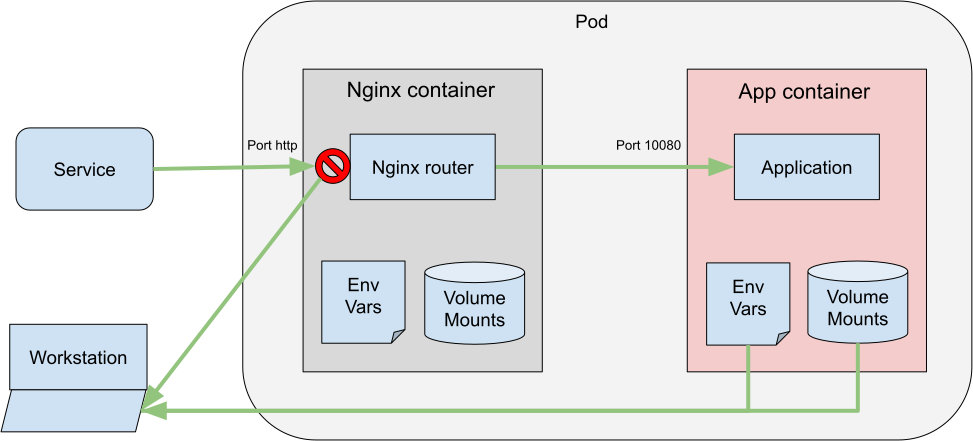Target a specific container
An intercept ultimately targets a specific port within a container. The port is usually determined
by examining the relationship between the service's targetPort and the container's containerPort.
In certain scenarios, the container owning the intercepted port differs from the container the intercept targets. This container's sole purpose is to route traffic from the service to the intended container, often using a direct localhost connection.
No intercept
Consider the following scenario:

Standard Intercept
During an intercept, the Telepresence traffic-agent will redirect the http port to the workstation.
It will also make the environment and mounts for the Nginx container available, because it is
considered to be the one targeted by the intercept.
$ telepresence intercept myservice --port http

Intercept With --container
The --container <name> intercept flag is useful when the objective is to work with the App container
locally. While this option doesn't influence the port selection, it guarantees that the environment
variables and mounts propagated to the workstation originate from the specified container.
$ telepresence intercept myservice --port http --container app
